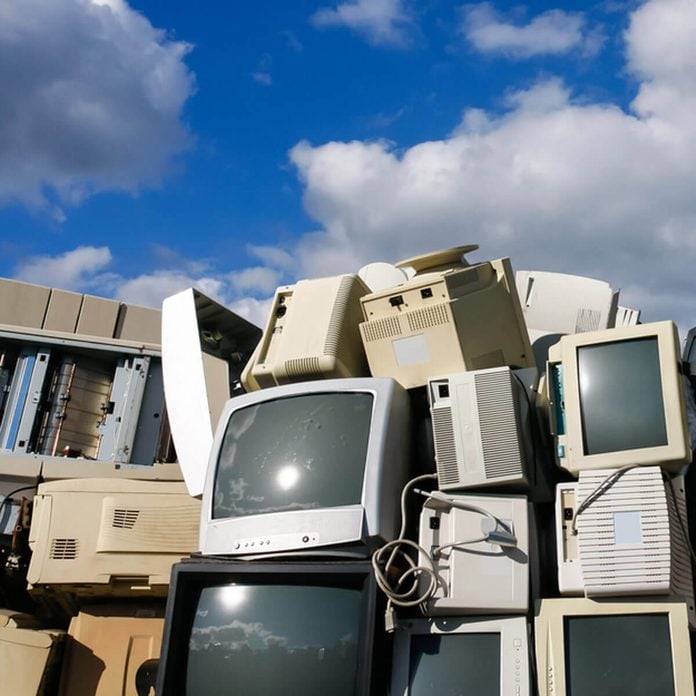
What is E-Waste?
Did you know that there are more cell phones than there are people on Earth? What remains unknown to most consumers is the final resting place of these electronic devices. For most consumers, out of sight and out of mind is the status quo. However, these devices do not just disappear.
Electronic waste or e-waste, is a term used to describe electronic products that have become unwanted, non-working or obsolete, or have reached the end of their useful life. Examples include computers and computer components (keyboard, mouse), printers, monitors, smartphones, microwaves, televisions, radios, dryers, washing machines and electronic toys. Basically anything with a cable cord or battery.
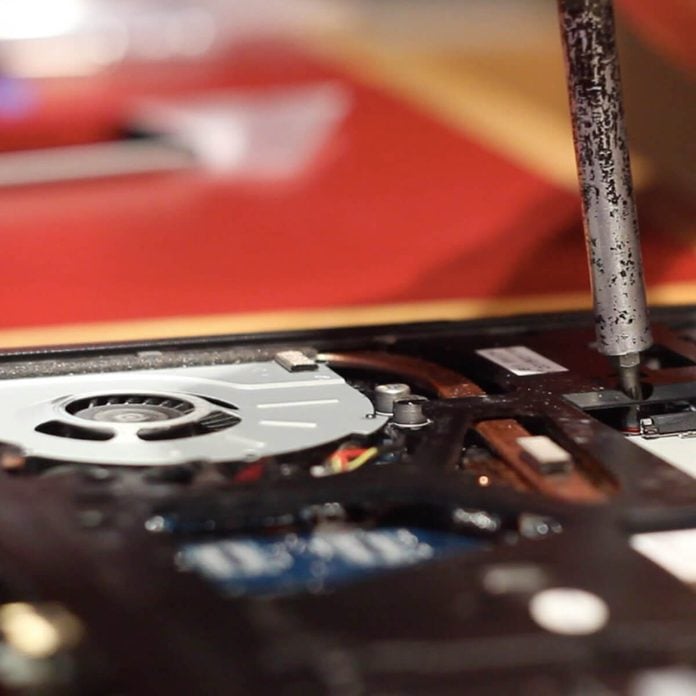
Why You Should Recycle or Repair Your Electronics
Did you know that electronic waste is fastest growing waste stream globally? This is due to both the shortened lifespan of our electronic devices and societies demands for the newest high-tech products.
The Environmental Protection Agency estimates that only 15 to 20 percent of e-waste is recycled, the rest of these electronics go directly into landfills, incinerators and are illegally exported to developing countries.
This is dangerous because most electronic components possess toxic elements, including lead, beryllium, polyvinyl chloride and mercury. All these materials are extremely toxic to the environment and humans. This is why it is important to properly recycle your electronics.
Photo: Extending The Link
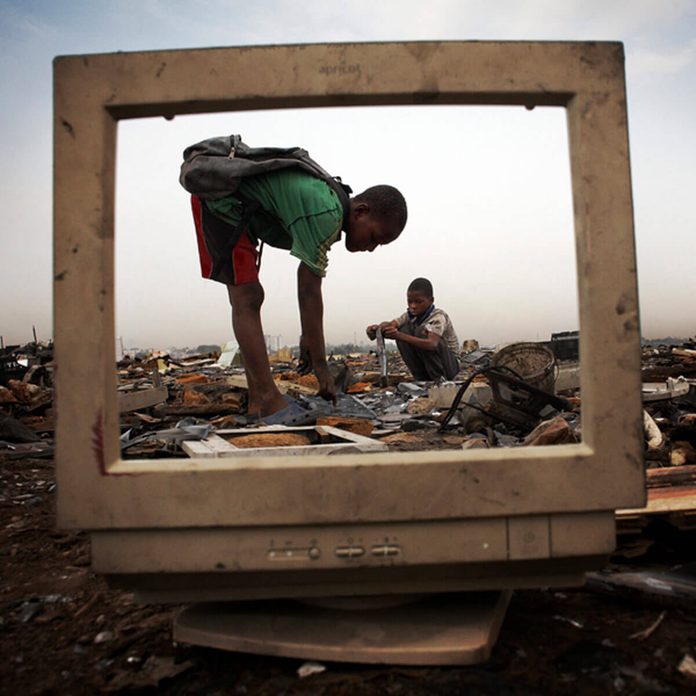
Export of E-waste
Another reason why it is important to properly recycle electronics is because e-waste is routinely exported to developing countries by irresponsible recyclers to places where they do not have the means to safely recycle these products.
These foreign junkyards hire low-wage employees to pick through the few valuable components of often toxic old machines. They often have to leave the toxic electronic parts in the scrap yards or dump them into the land.
Photo: TechSpot
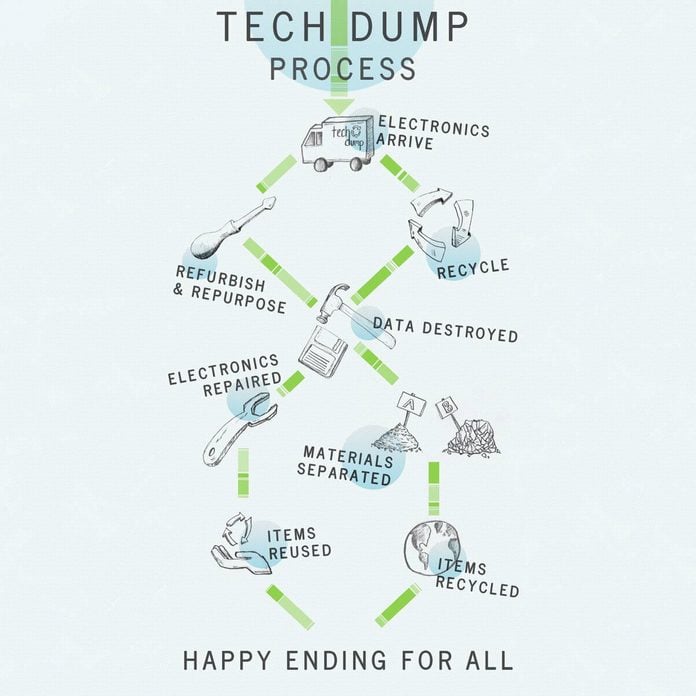
Where are Electronics Recycled?
You can recycle electronics properly at a local trusted electronics recycler. The E-cycling Central website allows users to select their state and city to find a trusted recycler nearest them. Additionally, many electronic recyclers offer pick-up services and collection events.
There are also ways to assure that your old electronic equipment is handled by a reputable recycler. It is important to check to see if your electronics recycler is first looking to see if old equipment can be reused before it is sold for parts. Reuse is always more environmentally sound and will give devices an extra couple years of usability.
If refurbishment is not an option, there is often an alternative. Reputable recyclers will use mechanical shredding and a high-tech separation device to take out the usable metals, which they can then send to a smelter.
Photo: Tech Dump
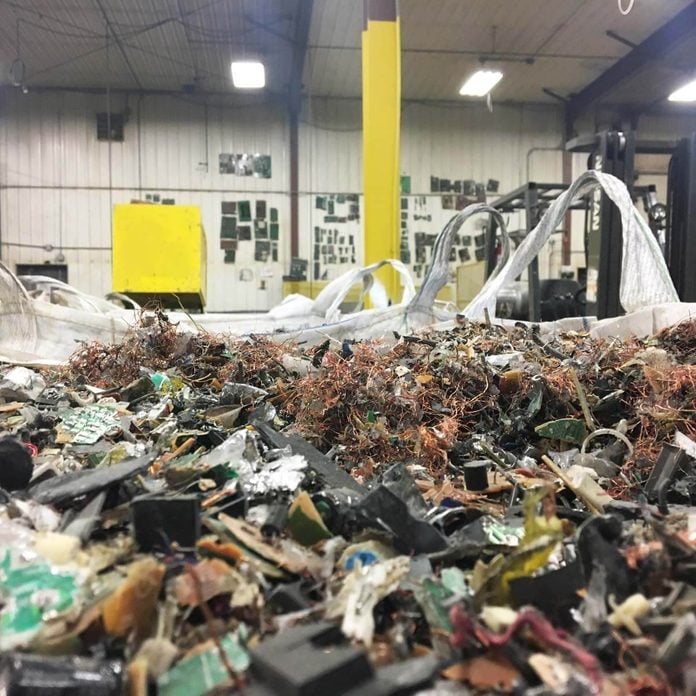
R2 and E-Stewards Certifications for Electronics Recycling
The United States has two standards for recycling electronics: the e-Stewards Standard for Responsible Recycling and Reuse of Electronic Equipment, known as e-Stewards, and the Responsible Recycling (R2) Practices, known as R2. Each standard has certification programs that the recycler has to go through and maintain. If an electronics recycler has either one of these certifications they are typically more trustworthy than a recycler without one.
Photo: Extending The Link
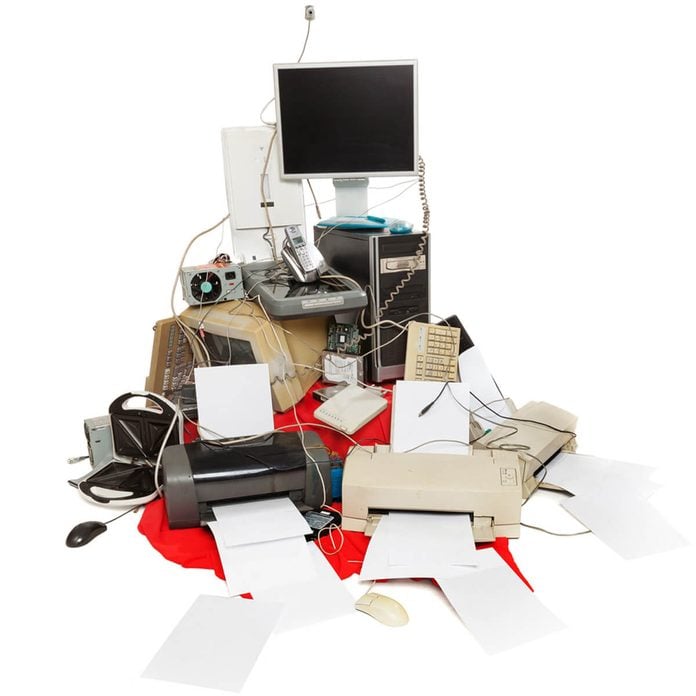
The Pile of Denial
Almost every home has a pile of unwanted and no longer used electronic devices. The recycling electronics world calls it “the pile of denial.” You don’t usually start with a large pile. Instead, this pile typically starts to grow over time. Normally, people finally get rid of these items when they move.
However, rather than letting the pile build, you should try to recycle your electronics as soon as you know you are done using them. Electronic depreciation happens fast, so by the time a device gets to a recycler nearly all of the initial value is gone, making it even more difficult to refurbish a device. When it comes to recycled electronics, the sooner you recycle it the better.
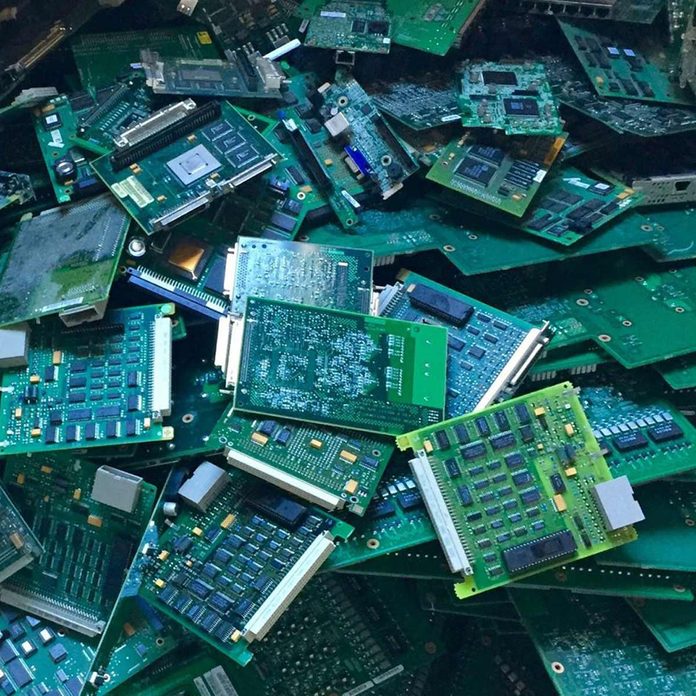
Don’t Forget to Erase Your Data
One important part of handling recycled electronics is data privacy. Before you recycle or donate your computer or cell phone, be sure to erase your data from the device. You must do more than just deleting the files. you must “wipe” the hard drive so it can’t be retrieved by anyone else. Sometimes your recycler will do this for you or will do it for an extra charge. There are also free downloadable softwares that will overwrite your data.
Photo: Extending The Link
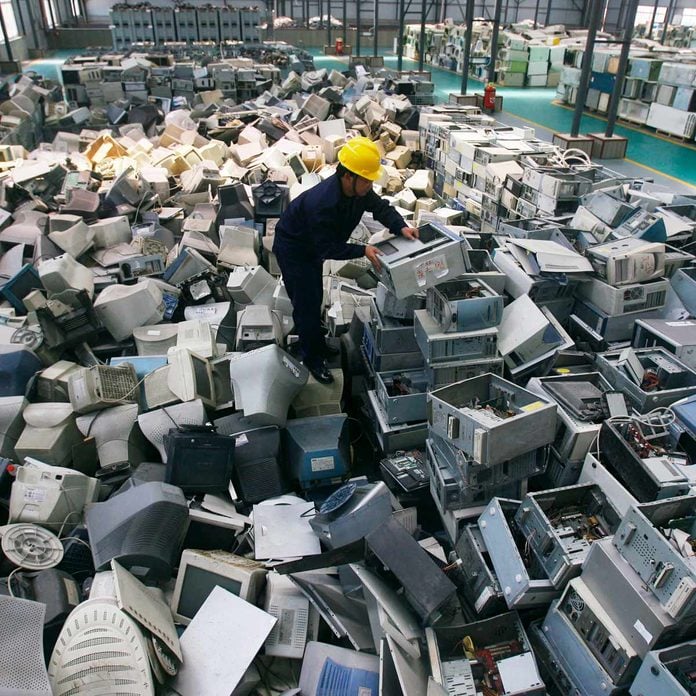
Paying to Get Things Done Right
Cathode ray tube or CRT TV’s contain on average six pounds of lead. This makes them extremely dangerous and costly to recycle correctly. Not all electronic devices are free to donate and drop off at an electronics recycler. CRT TV’s, printers, cartridges and many large home appliances are dangerous to recycle; consumers should expect to pay a small fee to recycle them. It’s better to pay a little bit now than to suffer the environmental consequences later.
Photo: Stringer/Reuters
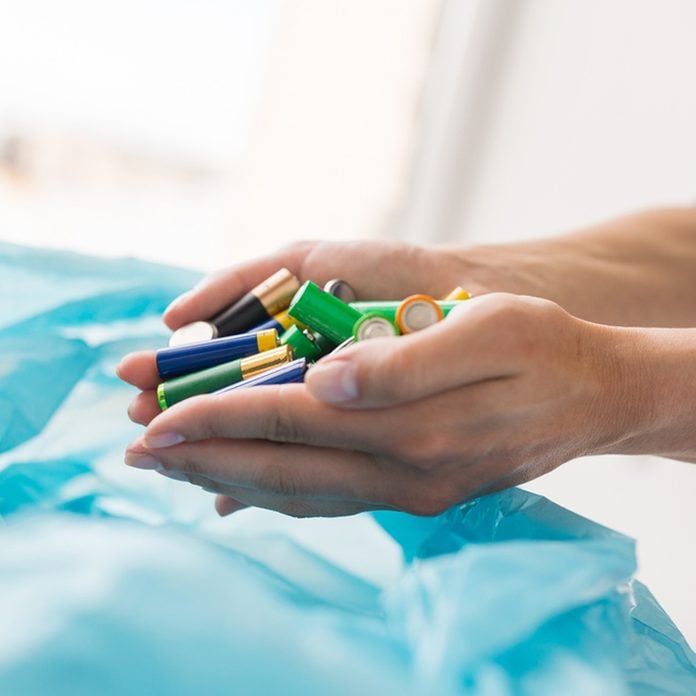
The Battery Myth
Don’t throw nickel cadmium batteries in the garbage! They’re made from poisonous materials that can harm the environment. You need to recycle them. Try a website like Battery Recyclers of America to find a local disposal center. Best Buy offers free disposal of household batteries, and Firestone does the same for car batteries.
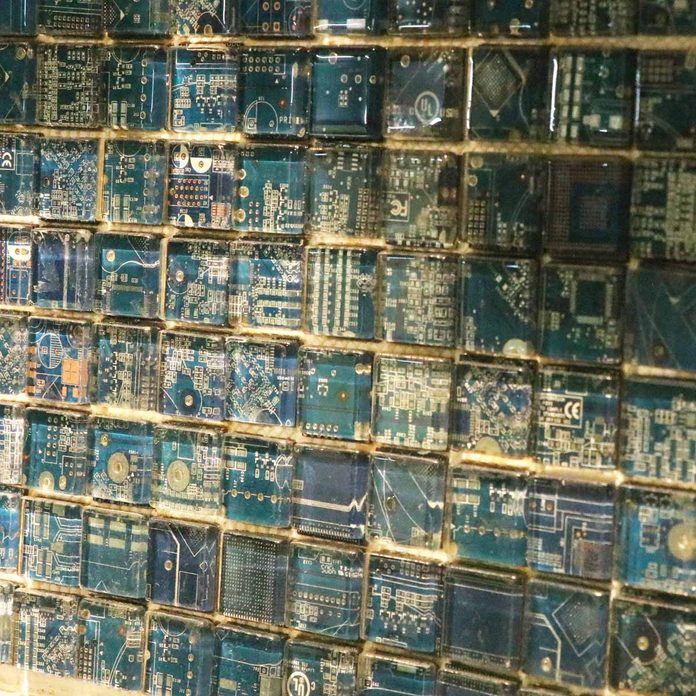
What Can We Do with E-Waste?
Manufacturers make electronic devices from precious metals. There is usually gold in circuit boards, copper for connective wires and silver in solder. If you properly recycle these electronics, the recycler can sell these precious materials for profit and turn them into something new. For instance, cell phone batteries can be used to make new smartphones and batteries, while zinc and aluminum from laptops and tablets can be used for metal plates, jewelry, cars or art. Here’s our guide for soldering electronics.
Photo: Extending The Link